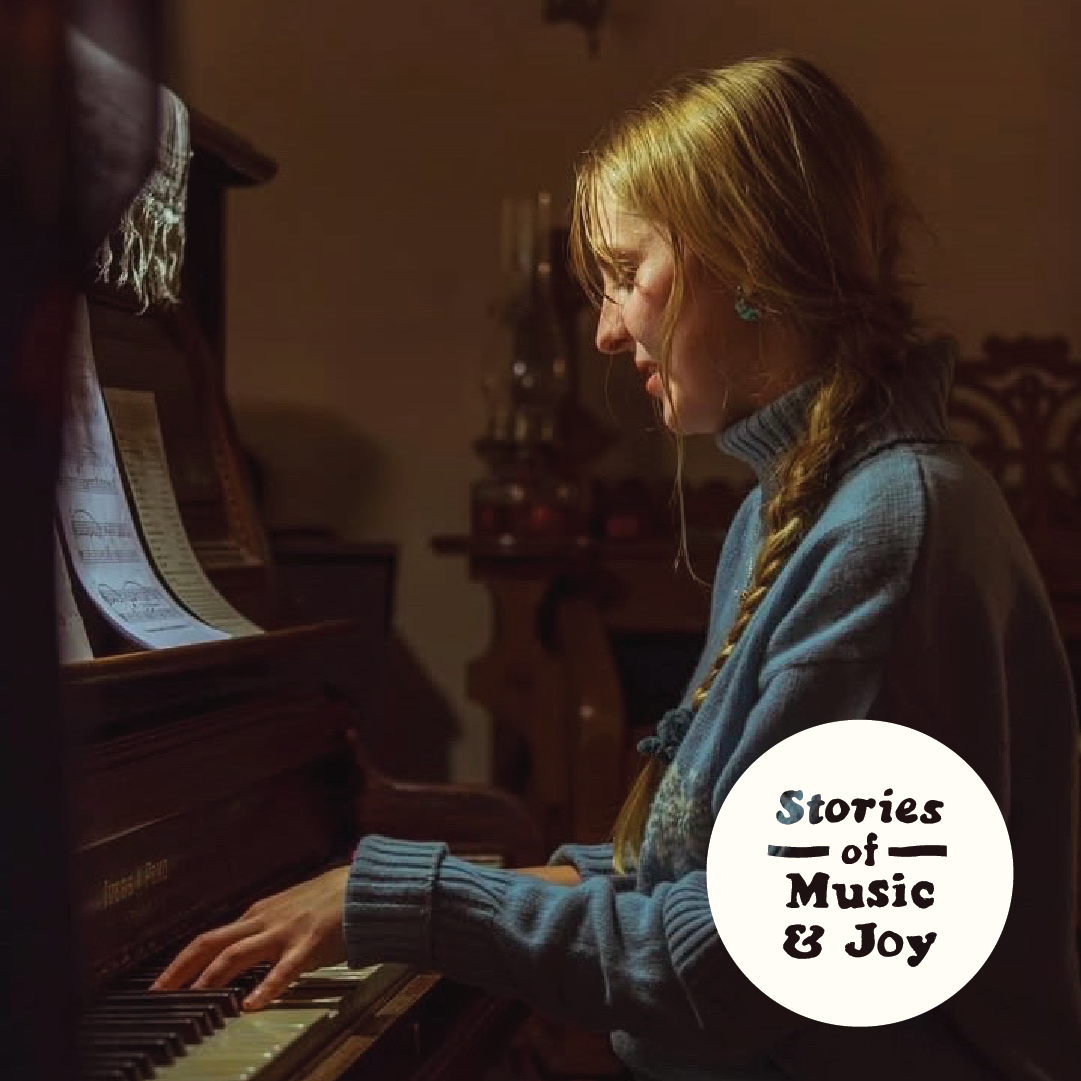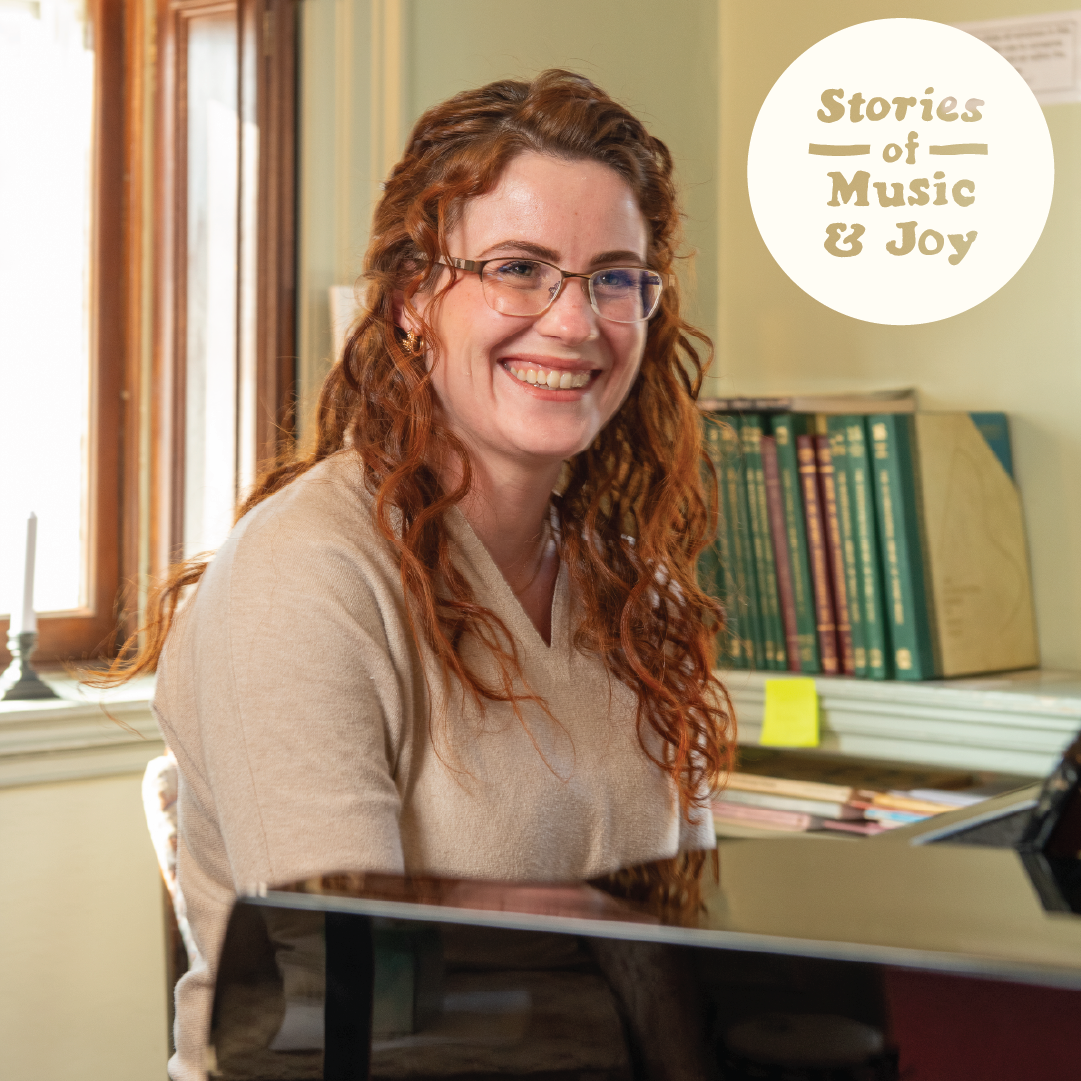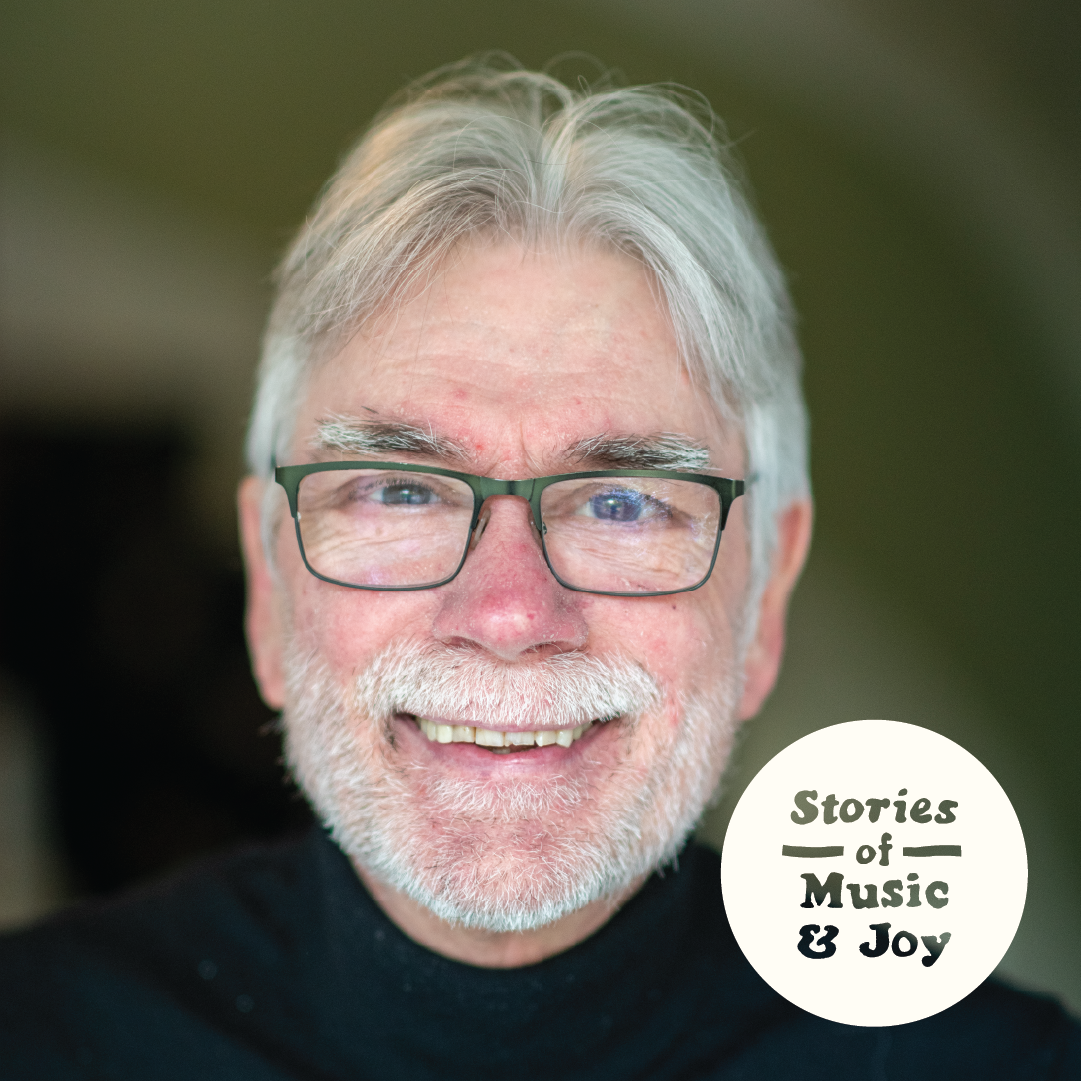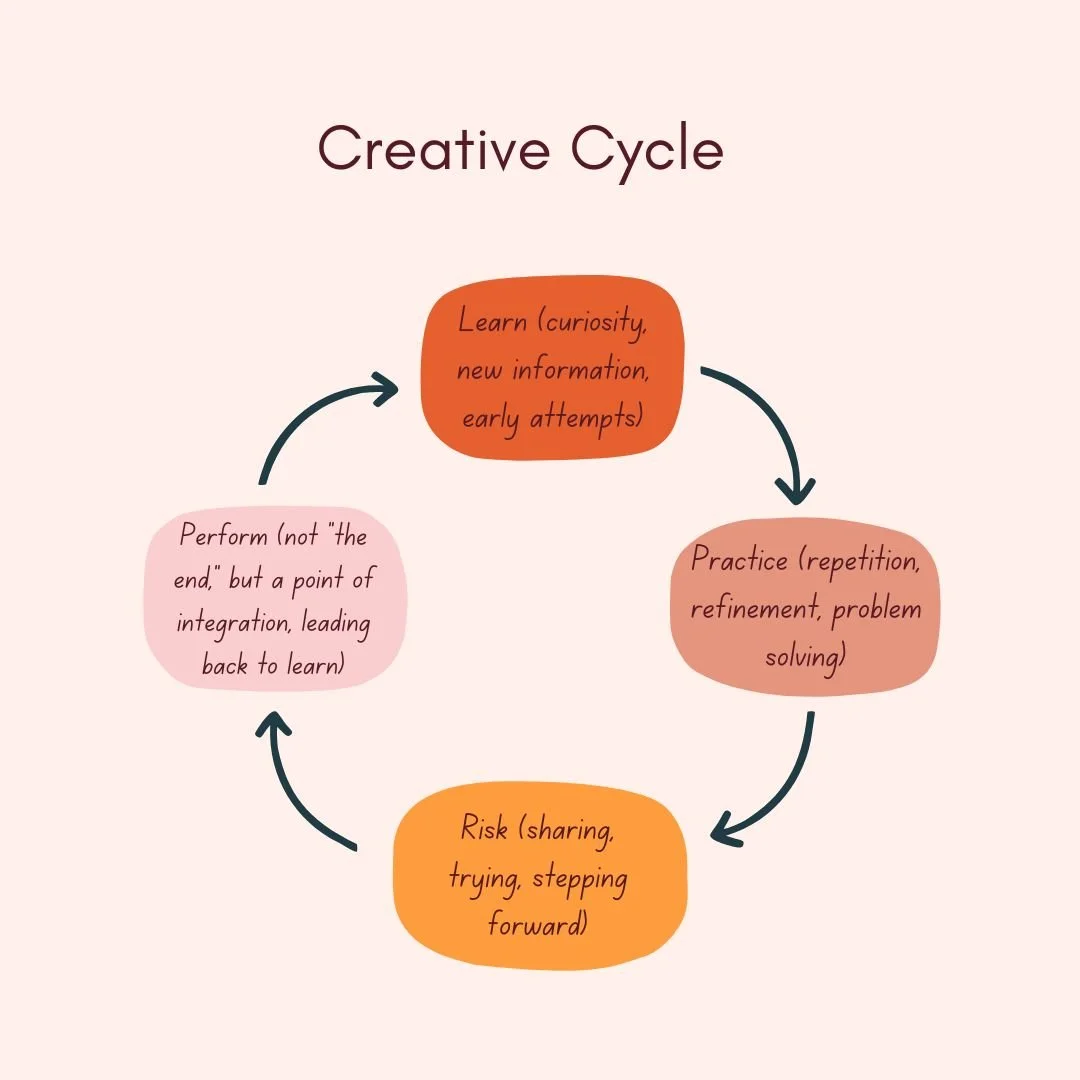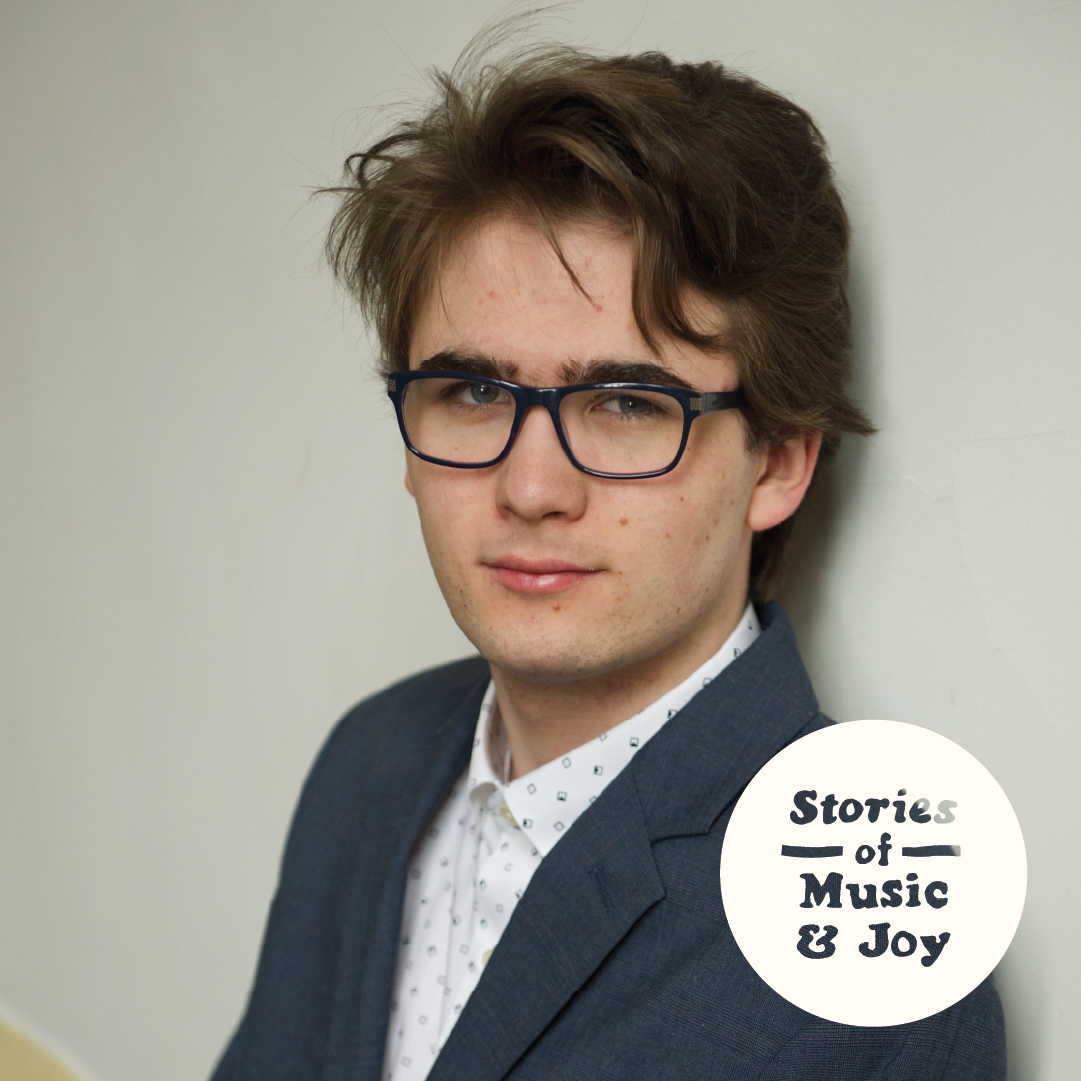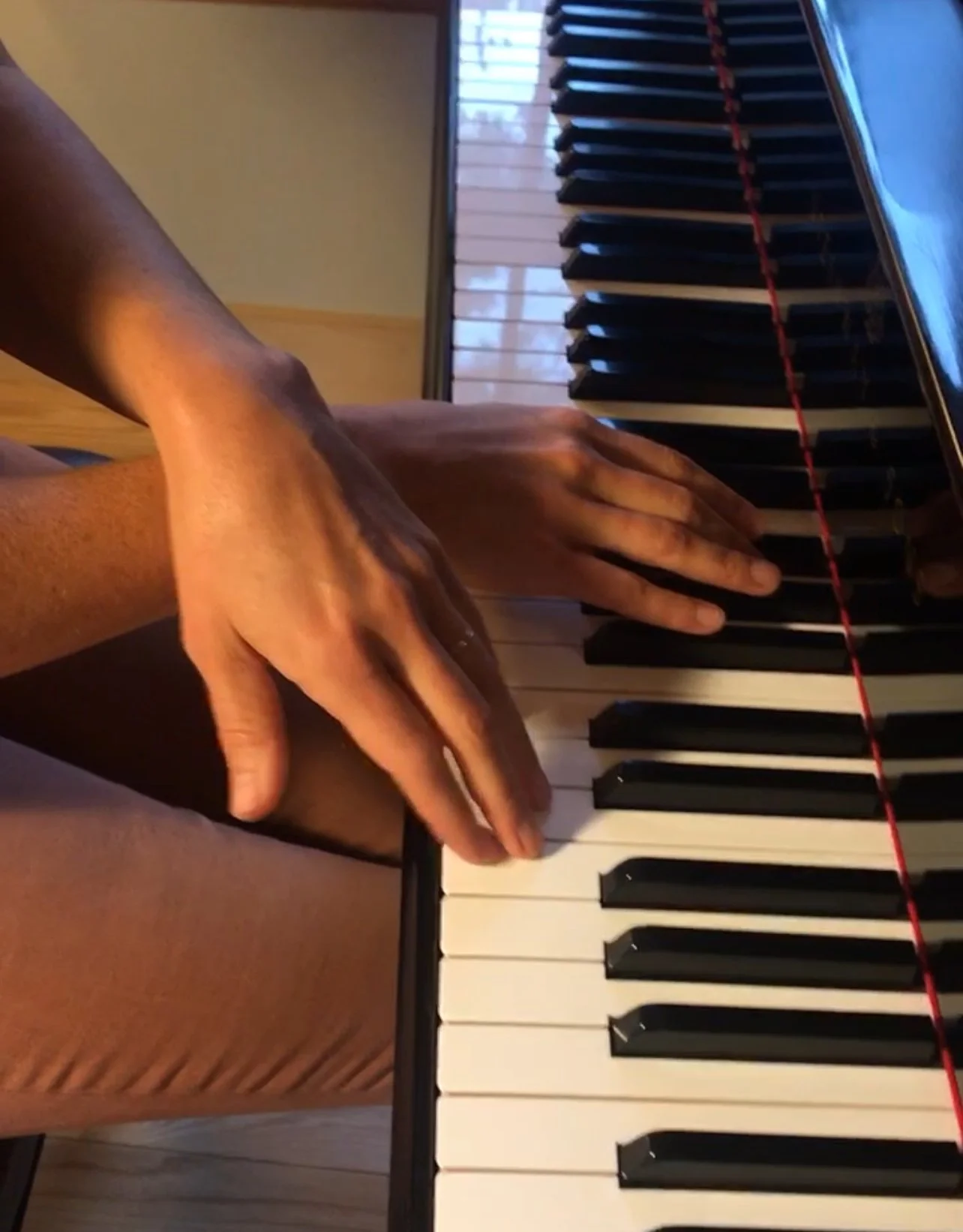It’s a fine line, priority alignment versus taskmaster. Music presents a double bind. On the one hand, progress only occurs with consistency and repetition. And on the other hand, music is ephemeral and offers us a chance to step out of the checklist-and-timeline mode and enter something deeper. It invites flow, a space that restores energy and refreshes perspective.
In music practice we have a powerful tool, one that teaches us healthy discipline while sharing unexpected rewards.
When I committed to a full-scale solo piano recital in 2018 — a memorized hour of music to complete my long-delayed Master’s degree — I devoted myself to a daily rhythm capable of meeting that challenge. I rearranged family responsibilities, work expectations, and built supportive habits to support my practice. I meditated, walked, and cross-country skied first thing in the morning. The routine was calibrated, regimented, and consistent. Within that structure I would sit down at the bench each morning and mathematically dissect the material.
Looking back, I see something I couldn’t fully see then. Fear was running much of that system. And a lot of doubt. I experienced routine as pressure rather than support. I don’t regret that phase, it taught me discipline, resilience, and insight. I completed the degree. But it also marked a new beginning, a new curiosity about motivation, sustainability, and what kind of relationship with practice I actually wanted to cultivate.
Even with the pressure there were breakthroughs. I experienced insights about music, my mind, and meaning that I still continue to shape how I work today. Routine wasn’t exactly the enemy, but it also wasn’t yet liberation.
I was drawn to music from a really young age. My family says I was singing before I was talking, and I was fixated by performing musicians at local concerts. It’s striking that those two early impulses shape my work and life today. MCMC exists to house, support, and encourage the proliferation of people making music. Through this process, individual potential unfolds, and community spaces are strengthened by the steady investment people make in themselves over time.
If you’re a parent of a child taking music lessons, the best support often comes from simple, repeatable habits anchored in the day. Like practice while dinner is being prepared, or just before or after a transition. For the children we work with, habit formation is foundational. Small and steady daily repetitions lead to identity formation, which becomes a much bigger driver for engagement in adolescence. This isn’t easy for kids, but it’s pretty straightforward: show up, go through the practice, then you’re done.
For adults, the equation is different. It often involves an act of reclaiming space. It's more about putting the oxygen mask on first, and the radical act of claiming our humanity to work with it in a nonlinear way. I hear many people say they’ll pick up music in retirement. Quietly, I observe others who claim routine earlier, even during busy seasons. I witness steadiness and pockets of joy woven into their lives now, not someday.
In February, we’re beyond the January frenzy of resolution-driven optimism. Maybe we can settle into a different conversation. I’m interested in something quieter: sustainable connection with what matters most. But before we abandon our January enthusiasm, what surfaced? What felt important? Let’s include that in the conversation and stay with it.
I often wonder what art practices teach us about structuring life, how to set up the day, channel energy, and move toward meaningful goals. Today, I’m returning to the joy of practicing for its own sake. Our musical community reminds me of that value every day. Positioning art as individual and communal sits at the core of our work. Regardless of how we interpret the events and conditions of the world around us today, music meets us where we are. It can absorb and even transform unrest and disillusion. I felt this even as a child. Playing simply helped me feel connected and grounded.
Every artist I know has a relationship with routine and each routine is unique. I believe we are all creatives, and art practice is available regardless of duration and intensity. I think of practice as time in the bank. Focused attention results in some type of change, whether that’s an internal shift, or an external output. But when routine carries self-judgement about what progress should look like, it can become self-defeating. To stay generative, aiming for ideals over outcomes can help.
Time in the bank offers us something liberating: we don’t need extraordinary effort today to make progress. We simply engage, reflect, then make another attempt. That neutrality builds an unshakeable bedrock of skill.
This brings us to today’s question: how can routine serve creativity rather than squash it?
Here are a few creative archetypes. I invite you to play along and see which fits this season of life. Likely, it will be a mix, or another model altogether. I’ve lived through countless approaches to routine. I’ve resisted it, rejected it, returned to it, and finally have begun to see how liberating it can be when it’s aligned with purpose not fear.
I offer these archetypes playfully, invitations not prescriptions.
The 4:00am Creative
Routine: Wake up every day with the precise steps of preparing and drinking a warm beverage, breathing exercises and light stretching, and then positioning the self to commune with the muse. Structure may be a word count or a certain number of measures or lines. Like Stephen King and Ludwig van Beethoven (who counted his coffee beans every morning).
The Twyla Tharp in the Studio Creative
Routine: Wake up and get to a space where creativity lives and breathes every day. The context is the frame. The freedom commences once the setting is activated. Form becomes clear through iteration and experimentation. Structure is to go unquestioningly and allow clarity to follow action. This is only available to those whose lives are set up with this kind of devotional time and space.
The Free Spirit Flexible Creative
Routine: Each day is a blank slate to find the right intuitive moment to drop into creative time based on the needs of the day. Flexibility is required due to caregiving or work commitments that occupy the majority of time and space. Structure is to fit creative windows in and around the other commitments as a self-honoring way to stay connected. They may be brief but they’re potent and essential. This may be available in the parenting or caregiving years, or in certain stages of career development.
The Weekend Warrior Creative
Routine: The work week is all-consuming, and when the weekend (or evening) comes, it’s a total switch into the creative priority. The conditions have been set up to drop right into the beloved activity. It’s cherished and appreciated. It’s anticipated. Structure is the set up ahead of time that allows for the ease of jumping right in when the schedule shifts. This can be a super successful way to tend to interests while other aspects of life are steady and non-negotiable.
It may seem contradictory to share archetypes while advocating personal design. But all four share is one common thread: we can take initiative today to establish a routine that serves the thing that calls us. We don’t have to wait.


